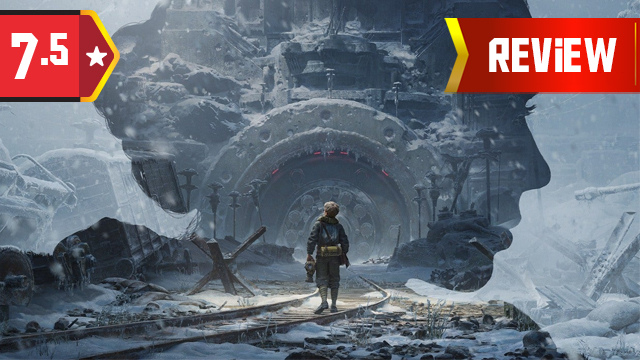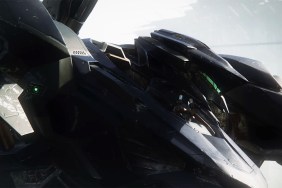Paradise Lost Review for PS4.
Video games love to use World War II as a backdrop (perhaps a little too much). Nazis make great cannon fodder and the morality of that war pretty cut and dried. But many of those games are shooters and not a lot of them stray into alternate history, two aspects that make walking simulator Paradise Lost stand out. Despite a few obvious twists and a lack of a central mechanic, PolyAmorous’ debut title has a story worth seeing even if it has gameplay worth missing.
An enrapturing setting
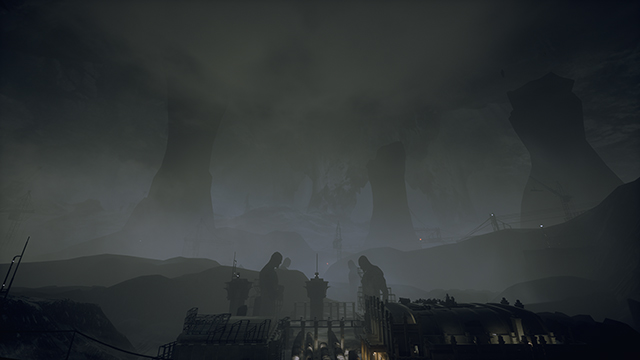
Story is basically all Paradise Lost has since the game doesn’t have gameplay outside of examining objects, pushing small buttons, and moving levers, if those can even be considered mechanics at all. Bonding narrative with the game mechanics is how entries in this genre elevate themselves to the next level so it’s disappointing to see Paradise Lost lack ambition in this way. Even some metaphor-free environmental puzzles would help with the pacing and interactivity (as long as the painfully slow walking speed was sped up).
However, Paradise Lost is able to completely lean on its story because it is elegantly told and presented. The dour depths of the vault are wonderfully rendered, striking a good balance of awe-striking scale from the exteriors and detailed interiors. This grand bunker is reminiscent of Bioshock’s Rapture as it is a completely unrealistic feat of engineering yet uses those fictional elements to truly inspire a palpable sense of wonder. Giant statues peer over the buildings. Sweeping vistas show the huge draw distance as well as how far deep underground the whole structure is.
The literal depth of the caves allows for huge structures that wordlessly demonstrate how much the twisted ambitions of the Nazis were able realize by living far past 1946. It is a chilling display of power and is an exaggerated reminder of the immorality of the Nazi empire and how it would fester further if given the time to do so. The villainy lies in how they were able to achieve these wonders and what they were used for, but it’s hard to deny how well it works as a setting for a video game.
The literal stages of grief
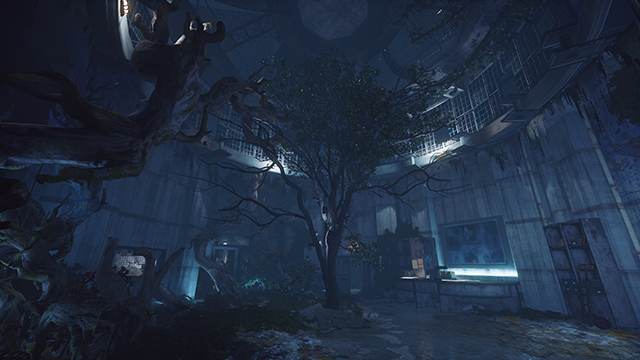
And like Rapture, this bunker has already collapsed, meaning players only get to relive its “glory” days through environmental storytelling. Video games usually settle for heavy-handed, bloody graffiti and not only does Paradise Lost avoid that crutch, it also uses its environments with much more subtlety and purpose.
Notes strewn around the area are haunting as it details their twisted outlook and how it applies to running such a large operation. Being able to walk through the areas in these notes designed for horrible acts gives more context to them as they explain what you’re seeing and why that structure matters. It’s not particularly new and there are sometimes longer stretches without anything to read or interact with, but it’s done relatively well here.
Most notes in a given stage are based around an actual stage of grief and provide the theme for the overall chapter. For example, some notes in the “Denial” chapter show how families were denied entry into the facility while other documents in the “Bargaining” chapter reveal how two factions were making deals with one another. Other nods to the themes lie within the environmental design as “Anger” is full of fiery reds while “Depression” is draped in appropriately sad blues.
PolyAmorous uses this brilliant framing device to weave together its characters and environments and this marriage makes the whole experience more cohesive. In the same way lava levels in platformers have fire-themed enemies, most parts in a given stage here work together to create a broader theme and work with each other to achieve that goal. Be it evoking a mood or feeling, Paradise Lost’s levels and notes work with each other to great effect.
A lost young boy
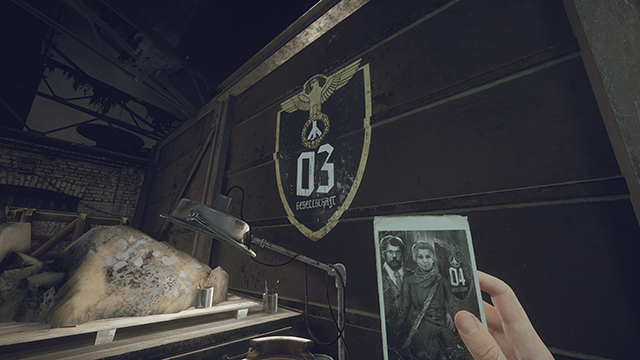
The protagonist, Szymon, also reflects the level design and further expands upon the aforementioned framing device. Grief defines his whole journey as he decides to dive into the bunker after his mother dies in order to look for the man who he thinks is his father.
Adding a personal touch to his adventure lends a solid emotional core to the plot as it makes the game more than a hollow, guided museum tour. However, the story thrives because of its many layers. Szymon stumbles upon a mysterious young girl in the bunker named Ewa who speaks to him via radio as well as the aftermath of Polish rebels who had overtaken the Nazis. Ewa gives the player and Szymon enough to be invested in but is obviously hiding secrets of her own. And the Polish rebel plotline initially shows the player how the bunker fell, but then transforms into something a lot bigger.
The three layers of intrigue provide compelling reasons to keep digging and each builds upon each other to inject more depth into the story. What begins as a trio of separate tales morphs into an integrated narrative that is gracefully woven together. Szymon’s quest is still at the heart of the game, but these other threads bolster his and at a welcome bit of complexity.
Trouble in paradise
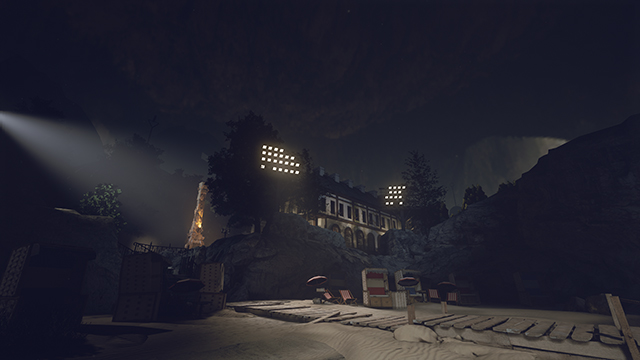
Paradise Lost doesn’t nail every part of its narrative package though. Subtlety works in the game’s favor as players reading the environment and journals and piecing together what happened from there is, when done carefully, an engrossing way to tell a video game story.
That graceful storytelling loses some of its grace in the last act. One of the big twists is obvious as the game goes overboard with its foreshadowing in a few spots, making it all too easy to see what is coming. Other late-game moments are further robbed of their impact as Ewa begins to oddly describe scenes in detail right after they happen like a tacky live YouTube reaction video.
Mediocre voice acting spoils a few of these moments, too. The handful of speaking roles are rather stiff and can suck the gravity out of some emotional scenes. While there is already a lot of reading, the game, given its setting and actors, would probably sound more natural if it had been in Polish.
Paradise Lost Review: The final verdict
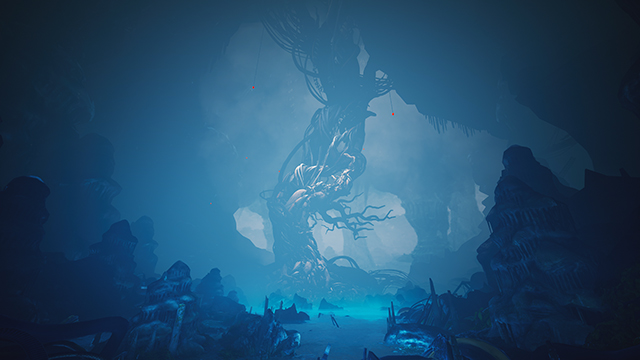
Paradise Lost doesn’t have any gameplay systems to keep players engaged and loses some of its potential because of it, but it does use its space well for its storytelling. It creates an otherworldly setting designed to simultaneously wow and disgust players as they make their way through gorgeous, yet heinous structures designed for evil. The stories within these structures are elegantly told for the most part as they reflect and strengthen each other along the way. Shooting Nazis in the face is almost always a blast, but Paradise Lost doesn’t resort to violence to make its point. Instead, it explores these horrors and wraps that inhumanity around the tragedy of a grief-stricken orphan, a rarity in the medium that demonstrates that how gaming can portray such evil needing to shoot at it first.
Game Revolution reviewed Paradise Lost on PS4 via PS5 backwards compatibility. Code provided by the publisher. Paradise Lost is also on PC and Xbox One.
-
Interesting environments have an awe-inspiring sense of scale.
-
Szymon’s personal story mixes in well with the other threads.
-
Centering the game around the five stages of grief is a clever framing tool.
-
No puzzles or engaging gameplay.
-
Some twists are pretty obvious and unsubtle.
